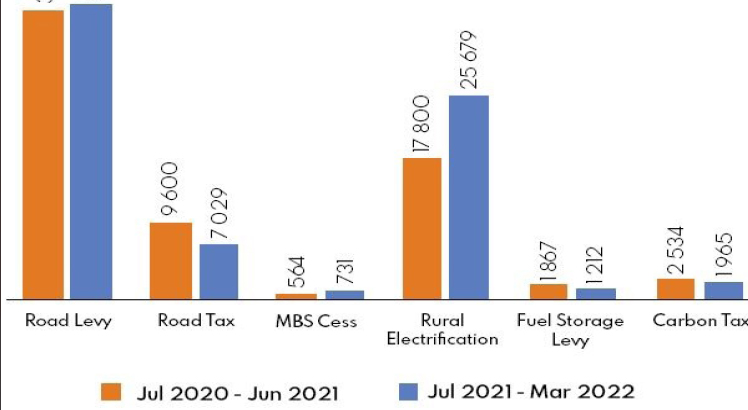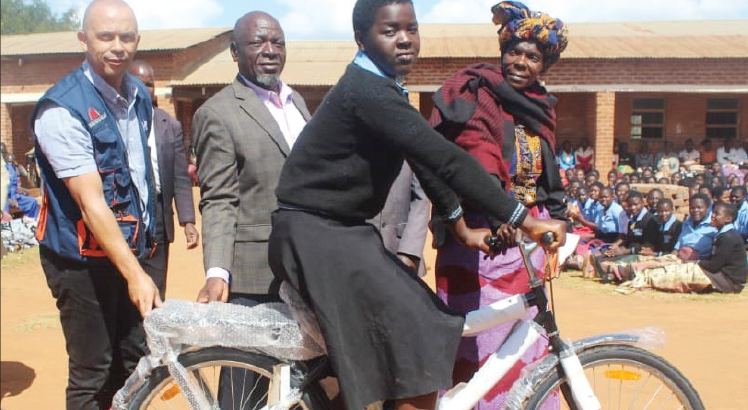Fuel levies collected by Malawi Energy Regulatory Authority (Mera) have increased by K5 billion in the 2021/22 financial year (July 2021 to March 2022) to K74 billion, published figures have shown.
This comes at a time government reduced and froze some levies to manage fuel pump prices and a shortened financial year running for nine months as government was transitioning to the new financial year.
In the previous financial year running from July 2020 to June 2021, government collected K69 billion in fuel levies.
In its July 2021-March 2022 Highlight, Mera said several factors affected fuel levy collection during the year under review.
Reads the analysis in part: “Factors influencing levy collection levels include length of the fiscal year, reduction and freezing of some levies to manage fuel pump prices, licencee payment of levy arrears and energy consumption growth.”
In April this year, Mera said to mitigate a higher fuel price increase, the board temporarily removed Rural Electrification Levy and Energy Regulation Levy component of K4 per litre being provision for Mera office complex.
This resulted in increased fuel prices by 20 percent per litre for petrol, 31.25 for diesel and 14.74 percent for paraffin.
With such percentage increase, petrol is now selling at K1 380 per litre from K1 150, diesel price at K1 470 from K1 120 while paraffin is selling at K956 from K833.20.
In an interview on Monday, Consumers Association of Malawi executive director John Kapito said the freezing of levies has helped to maintain lower prices than if all levies were effected.
“But we hope government will consider removing more levies to assist in the reduction of basic products and services on the market,” he said.
Several other commentators, including the Malawi Confederation of Chambers of Commerce and Industry, have previously lobbied for removal of some of the levies to help ease the price consumers pay at the pump.
Currently, there are six levies. There is the road levy which finances road construction and maintenance through the Road Fund Administration, energy regulation levy used to fund budgeted activities by Mera, Malawi Bureau of Standards (MBS) cess levy ialso in the price build up and finances quality monitoring and development of standards while the rural electrification levy funds the extension and provision of electricity to rural and remote areas to increase access to power.
The price also includes storage levy that finances the development and expansion of internal fuel storage capacity. Following the price review, the Mera board changed the name of this levy to Strategic Fuel Reserves levy and will now be handled by the National Oil Company of Malawi. n
The post Fuel levy revenue rises to K74bn, figures show appeared first on The Nation Online.
 Moni Malawi
Moni Malawi 

